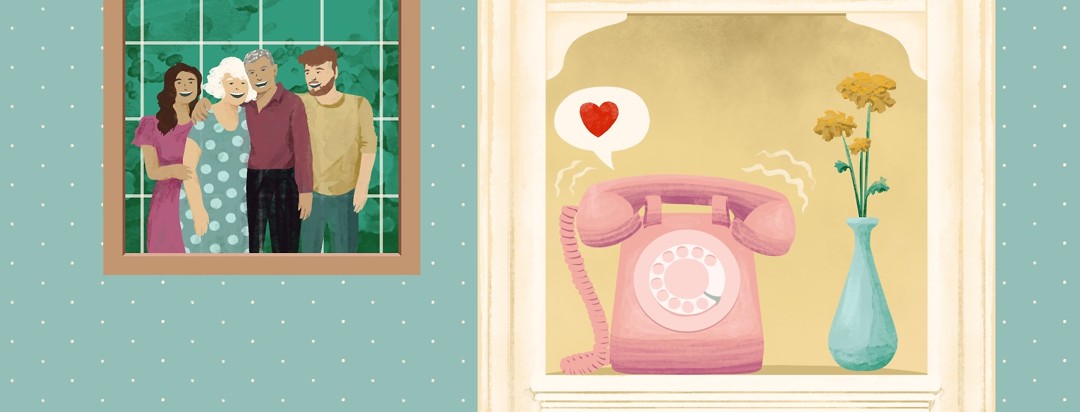Supporting Caregivers: Weekly Phone Calls with Mom and Dad
The primary caregiver for a loved one living with Alzheimer's needs support. There are many ways that can be done. Sometimes it is as simple as providing support with a phone call, something that is so underestimated.
My mom was the main caregiver for my dad. My brothers, myself, and our spouses were all there to help in any way we could. We all felt the calls home were not enough, but it was all we could do consistently since we live out of town.
The phone call routine
There was a routine to our calls that had been established years before Dad ever got sick. My brothers and I each called Mom a minimum of once a week. Yup, all 3 of us. We each knew approximately what time the others called, and it was just part of our routine.
As Dad's health changed, providing support with phone calls became even more important. Sunday mornings, Mom got 'the calls.' Mom would give all the updates of the week with how she and Dad were doing, what changes were happening with Dad, and what new decisions were pending.
Supporting caregivers through phone calls
She gave each one of us the details she felt were important. She never seemed to mind. My brothers and I would email each other after the calls and compare notes. We figured out that Mom sometimes gave each of us different details, which is understandable because each conversation with one of us would originate from a different place — it made perfect sense.
Our follow-up emails between each other made sure we were all aware of the things that mattered with Dad and Mom. It also helped us to plan for what else we could possibly do to help out from a distance or for our next trips home. Mom always said she was happy to hear from us.
Caregiver support through Alzheimer's progression
When Dad was still at home with her, she would always pass the phone to Dad so that we could talk to him. We knew he did not always understand the conversation but it seemed to help Mom and us. We knew as the Alzheimer's progressed that Dad would not know who was on the phone, but at least we could each start the conversation with, "Hi Dad. It's [Shell or Mike or Tim]."
Mom said Dad would ask when we were coming home after some of the calls when he was still able to engage. That was both heartwarming on one hand and heartbreaking on the other. Heartwarming because Mom and Dad wanted to see us all but heartbreaking because, all of us living hours out of town, we knew we could not come. After a while, those calls were mainly for Mom.
Checking-in on the cadence of phone calls
I was venting one day to a friend and colleague about my parent's situation, and the topic of calling came up. I described how I was struggling with the weekly calls. I was afraid to hear about the changes in Dad. My friend said she calls her mom every day to say hi. That got me thinking. Mom and I talk weekly - I call one week, Mom calls the next. We have done this for years.
Was I less of a caring daughter because I did not call Mom every day? The following Sunday, it was my turn to call Mom. Later in our call, I asked Mom if it would be helpful for me to call her daily to see how she and Dad were doing - you know - to support her. Her response and the tone of her response made us both laugh. No. She did not want me to call every day. "Oh goodness, no!" Well, that took care of any guilt I may have had.
Alzheimer's caregiver support
As it turns out, the calls home were enough a lot of the time. You cannot underestimate the caring and connection of providing support with phone calls, it helps to make them continue to feel connected. As much as my brothers and I were involved, Mom was still essentially dealing with Dad's health alone.
Those phone calls never overwhelmed Mom. She was always happy that we called, even if it was just to talk about the weather. Phone calls can mean the world to the caregiver. Would you like to talk to others in the Alzheimer's community about caregiving from a distance? Reach out in our forums.
Interested in more on progression and support through Alzheimer's? Check out Alzheimer's Progression: Support Through the Stages.

Join the conversation